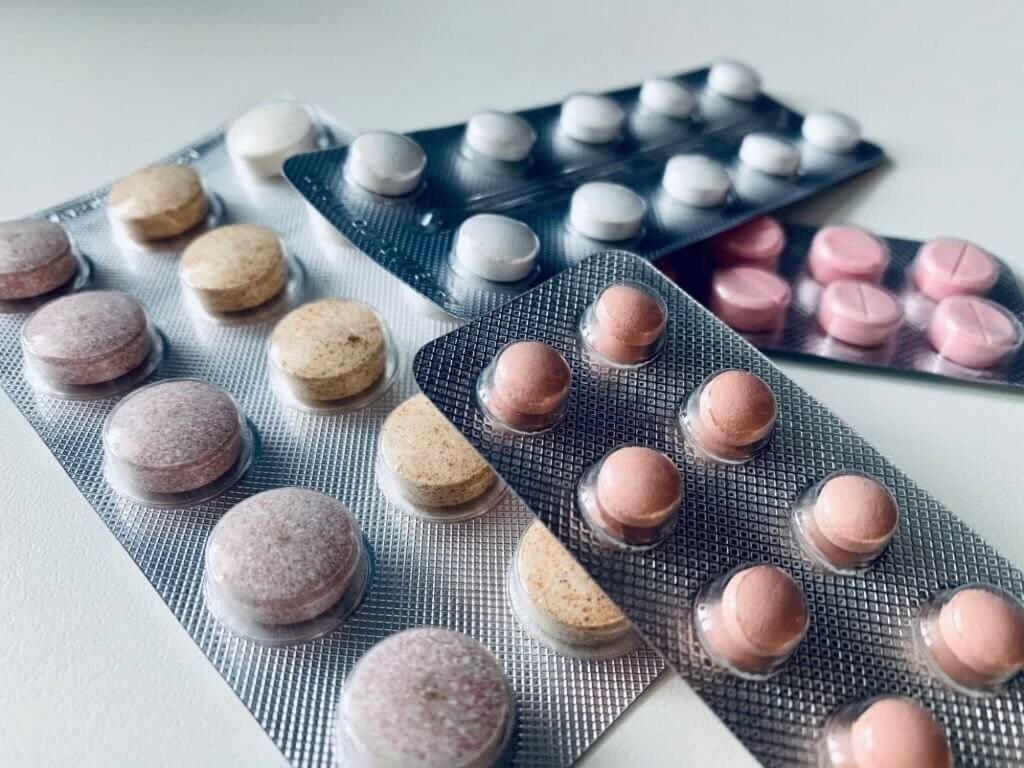When I was a person related to the medical arena, one of the most common questions I received related to prescription medication was “What to do when you accidentally take large amounts of your prescribed meds?”
Taking metformin alone can be dangerous. But, overdosing with metformin is uncommon. But, it can have serious consequences.
According to the U.S poison control center, 4072 patients suffered from Metformin overdoses. That’s an incidence rate of one in 2500 exposures. Here is what the U.S poison control center says if you are careless and take too much Metformin.
Metformin Use and Its Normal Doses

Metformin is mainly used to control blood sugar levels in the case of type 2 diabetes. It helps to regulate menstrual cycles, too, perhaps with the help of a drug called Clamed. It’s also good for women with PCOS.
Tablets and capsules are available for metformin. When to take metformin should be discussed before taking the medication. Metformin overdose and its side effects are introduced. We will also have an idea about taking the medication normally.
Adults aged over eighteen to seventy-nine years are prescribed varying doses of levetiracetam, starting from a daily dosage of 500mg and ending at a daily maximum dosage of 2550mg per day. This is divided into three or four doses over the course of the day.
Older people who are prescribed the drug Metformin should not consume more than 2000mg of the drug a day. They should make sure to inform their doctor if they experience any side effects. A: You have at least 3 questions that can
If you have taken Metformin for a long time, the accumulation of it might cause chronic kidney problems.
Taking high doses of Metformin can cause side effect. In case of accidental overdose, you may experience gastrointestinal symptoms, lethargy, headaches, and pain in the ribs.
Addicted to Metformin: What’s Next?
Metformin overdose is often responsible for a lot of problems. In addition to being responsible for lactic acidosis, it can cause gastrointestinal problems, as well as Hypothermia, and it is also responsible for a lot of other complications.
Metformin decreases plasma glucose level and reduces glucose production. Excessive dose can induce hypoglycemia.
Metformin can cause significant health problems. Let’s discuss the effects of metformin overdose.
1. Lactic Acidosis

Metformin is the most likely outcome of an overdose with systematic information about lactic acidosis and electrolyte imbalance to indicate the concentration of serum lactate that indicates lactic acidosis.
The blood’s lactic acid content exceeded the normal range of 0.5 to 2.2 mmol per liter. Additionally, the blood’s lactic acid content exceeded the normal range when it was drawn from the patient’s veins.
Metformin’s u crash degree was determined to be 0.188 mg per ml. Metformin poses a risk for lactic acidosis. Regarding the drug’s metabolites, do not confuse it with methandrostenolone (meta-D).
The blockade of an enzyme used in the formation of pyruvate causes the increase of lactic acid in the muscles. This enzyme blockage ultimately hinders the production of pyruvate.
2. Metformin Toxicity
Metformin therapy can lead to lactic acidosis, which is a life-threatening condition. The symptoms may progress to a rapid decline of the heart and breathing functions. This condition is called as “cardiac/respiratory arrest.”
Most cases of toxicity have high mortality. The mortality rate has been reported to range from 30-50%. Sometimes, though, toxic cases can progress into a septic shock, producing a much higher mortality rate.
Metformin poisoning may potentially harm the function of the kidneys, heart, and lungs. Metformin elimination depends only on the kidneys. Thus the proper function of the kidneys is necessary.
Due to the side effects of Metformin, which can lead to shock, coma, and death; it is necessary to stay calm and contact your doctor immediately if in the event of toxicity.
3. Diarrhea
Abreu-Barros *et al*. in Brazil assessed the effect of argon plasma coagulation (APC) to treat metformin-induced melena vs. metoclopramide and found APC to be highly successful in the endoscopic treatment of metform
Metformin does work by directly targeting the gut and thus leads to signs like nausea, vomiting, etc. this might cause frequent visits to the bathroom, which can dehydrate a person.
4. Lack of B12 Deficiency
B12 deficiency is common among users of Metformin. The effects of Metformin overdose include a reduced ability to absorb vitamin B12.
In order to prevent vitamin B12 deficiency, [Metformin] that interferes with the absorption of B12 in the gut might be a good idea.
Doctors can treat Vitamin B12 deficiency by using supplements. The supplements are usually taken monthly in 3 months.
5. Nausea
Nausea is another side effect of metformin overdose. About 1 in 7 metformin users suffer from it when they accidentally took 3000 mg metformin.
Apparently it is quite common that Metformin-treated patients feel nausea. Metformin, a medicine used to lower blood sugar, has an increased amount in the blood. This medicine is also known to cause side effects like nausea/vomiting.
6. Metallic taste
Metformin oral intake may cause off-taste in the mouth, which should subside as the other symptoms of overdose are treated.
7. Hypoglycemia
Metformin is a generic drug that causes a drop in blood glucose levels and reduces the incidence of diabetes. Metformin also suppresses the release of insulin, and it prevents the break down of glycogen in the liver.
If a person observes his insulin levels are decreasing while consuming carbohydrates, then that could draw dangerous low blood sugar levels. Hello! The insulin levels shouldn’t decrease while consuming carbohydrates.
8. Hypothermia
The formation of hyperglycemia due to hypothermia explains that hypoglycemia may cause sweating, peripheral vasodilation, and mozilla data, which inhibits shivering. All of these things help in reducing body temperature and cause hypothermia.
9. Hypotension
Metformin (used to treat type 2 diabetes) has the effect of reducing the cardiovascular response to the intraduodenally glucose released by type 2 diabetic patients. After meals, blood pressure may be reduced, causing hypotension.
Even though diastolic and systolic blood pressure are decreased (i.e. the pressure inside the heart decreases), it is possible that the heart rate increase above normal.
Other adverse effects of Metformin overdose
Besides the major effects mentioned above, Metformin overdose has A: When assigning responsibility, the use of “inklings” [word] in sentences is very hard to hear. There are good
A person might experience any or all of the following harm or problems if he or she is unable to clear his or her stomach of food or drink: Epigastric pain; excessive thirst
Patients can face minor side effects, but it is advisable to visit a doctor immediately.
The risks of Metformin intake

Metformin usually isn’t administered to patients with kidney problems and a history of kidney problems may lead to accumulation of Metformin, which is why patients with a history of kidney problems should not be prescribed Metformin.
Cardiac patients who take Metformin also need to be cautious of its effect on heart problems. To manage your condition, it is important to inform your heart specialist of your condition and the medication you are taking.
If you are diagnosed with diabetes, you should also be tested for the rarest of the rare cases: lactic acidosis.
What are the steps you need to take for Metformin overdose?
In order to reduce any side effects of the medicine, an individual should first monitor their symptoms. The intensity of the symptoms varies from person to person. Meanwhile, he/she should not take the immediate dose to balance off the medicine.
The symptoms of lactic acidosis could include: pain, nausea, and vomiting. In addition, you should let your doctor know if you notice any of the symptoms of lactic acidosis. You should check your blood sugar levels to determine its status.
When a person who is hypoglycemic feels fatigue, he can take a meal rich in carbohydrates, or consume a small amount of carbohydrates, to overcome it. It is helpful if the person would always look out for adverse symptoms.
When a person is in a dangerous situation, hemodialysis may be necessary. Metformin, being a dialyzable drug, can be removed from the bloodstream through dialysis.
Prevent accidental overdosing of sodium.
The pill minders are a compact way to keep track of pills stored in small, individual envelopes, one for each pill. They come in all shapes and sizes, in designs from simple to complex.
However, sometimes it is better to follow the advice of your doctor.
FAQ
- Can I take 30 tablets of Metformin a day?
Standard release dosage for Metformin is 2500 mg per week. However, there are 3000 mg of standard-release tablets, usually used for special cases.
“Your doctor may want you to keep track of your Metformin use, so as not to overdose,” advises the pharmacist.
- How much Metformin is lethal?
Oral ingestion of one gram of metformin should not be taken. If more than that amount is ingested, severe poisoning may occur. Metformin can lead to lactic acidosis, renal and heart failure, coma, and ultimately death.
- How much Metformin can I take in a day?
Metformin is not a medicine that should be taken in excess. Consuming more than 2000mg per day will not negatively affect you in the long term.
Final Thoughts
Metformin doesn’t play a big role in insulin concentration. But, though it doesn’t play a significant role in insulin, it does have a wide range of roles in controlling glucose.
Failing to control your blood sugar levels when you accidentally take something like Metformin, the most popular oral blood glucose-lowering medication, can be dangerous. You should immediately check with your doctor in order to get more guidance.



